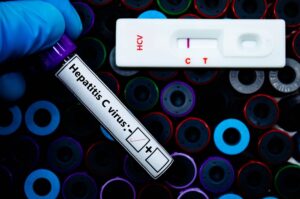
Signs of Stomach Ulcers
Stomach ulcers are open sores that develop on the lining of the stomach or small intestine, but heartburn is caused when stomach acid flows back into the esophagus.

It is likely that you have heard the term “internal bleeding” before, particularly in medical dramas and action movies. Yet, if you find yourself wondering what exactly internal bleeding is, what some of the internal bleeding stomach symptoms are, and what causes it, you are not alone. Unless you have experienced it firsthand, internal bleeding can be an abstract and frightening concept that may lead you to wonder how you will know if you or a loved one bleeding internally.
Internal bleeding (or hemorrhaging) is bleeding that occurs inside the body when a blood vessel is damaged. Often caused by trauma, internal bleeding causes blood to pool inside the body rather than bleeding out through a cut or wound, which can make it difficult to diagnose. However, if untreated, internal bleeding can be fatal, making it important that those who believe they may have internal bleeding seek immediate medical attention.
Keep reading to learn more about the causes, signs, and internal bleeding stomach symptoms and how you will know if your symptoms require medical care.
Why might someone experience internal bleeding? The most common cause of internal bleeding is trauma to the body, such as what one might experience during a car accident or a bad fall. A traumatic accident or injury can apply excessive force to internal blood vessels that can cause them to tear and bleed. Internal bleeding can happen in any part of the body including the chest, abdomen, and head.
However, a traumatic injury is not the only reason why someone may experience internal bleeding, as certain diseases and conditions may leave one vulnerable to hemorrhaging. Common causes of internal bleeding include:
One of the primary dangers of hemorrhaging is that, since the bleeding is not visible, internal bleeding may go undetected for some time. This makes it critical that you are aware of the signs that can indicate internal bleeding. While the most common symptom of internal bleeding is severe pain, the signs of internal bleeding can vary depending on where in the body the bleeding is taking place.
In addition to these location-specific internal bleeding stomach symptoms, significant blood loss caused by internal bleeding can cause general symptoms including:
These symptoms often indicate severe blood loss, and they could even be a sign that your body is going into shock. Shock is a medical emergency that occurs when the tissues in your body can’t get enough blood and oxygen. If you experience these symptoms and you have reason to believe that you may be experiencing internal bleeding, it is critical that you seek immediate medical attention.
The primary goal of treating internal bleeding is to find the source of the bleeding and stop it. In some cases where the bleeding is minor, treatment may simply involve rest and hydration, as the hemorrhage may repair itself. Typically, a clot will develop that limits bleeding while the blood vessel repairs itself, and the surrounding tissues will absorb any excess blood over time. Doctors may also decide to give you medications meant to encourage clotting and slow the bleeding. However, severe cases may require serious medical intervention including blood transfusions and even surgery to locate and stop the bleeding.
If you suspect that you or a loved one is suffering from internal bleeding, it is important that you do not assume that the situation will resolve on its own. Internal bleeding can have serious and even life-threatening complications, making it critical to consult a doctor as soon as symptoms appear.
Internal bleeding is a serious, life-threatening condition that requires immediate medical attention in order to prevent organ damage. The fact is that there is no way to know whether or not internal bleeding is severe until testing has been done, so you should not assume that your symptoms will improve on their own.
Thusly, if you have symptoms indicating that you may have internal blooding, you should seek emergency medical attention. You should also be evaluated by a medical professional if you experience physical trauma (such as in a car accident), as your doctor may be able to detect internal bleeding before symptoms appear.
While internal bleeding is a frightening prospect, knowing the signs, causes, and internal bleeding stomach symptoms can help you know what to look for, ensuring that you are able to get proper medical attention as soon as possible. Feel free to contact us to learn more about the signs of hemorrhaging and whether your medical history may put you at an increased risk of internal bleeding.

Stomach ulcers are open sores that develop on the lining of the stomach or small intestine, but heartburn is caused when stomach acid flows back into the esophagus.

Poorly absorbed carbs may ferment in the gut, leading to symptoms such as bloating, gas, diarrhea, or constipation.

If left untreated, GERD can lead to complications including esophagitis (inflammation of the esophagus), strictures (narrowing of the esophagus), or even Barrett’s esophagus, a condition that increases the risk of esophageal cancer.

IBS-C often requires a tailored approach that incorporates dietary changes, stress management, and sometimes prescribed medications to regulate bowel movements and reduce discomfort.

Hepatitis C can affect women differently due to hormonal variations, immune system responses, and unique physiological factors

This connection means that stress, anxiety, and other psychological factors can directly impact gut function, leading to symptoms like abdominal pain, bloating, and irregular bowel movements.

Chronic inflammation associated with IBD can lead to complications such as joint pain, skin conditions, eye issues, and more.

How different types of fiber affect IBS is crucial to creating a diet that supports digestive health without triggering flare-ups.

Lactose Intolerance occurs due to a deficiency of lactase, the enzyme responsible for digesting lactose in the small intestine.

This condition can result from various factors, including poor diet, stress, infections, or underlying health conditions like IBD.

One of the most essential steps in managing IBS is identifying specific triggers and paying attention to your body’s unique responses.

Although the symptoms of IBS can vary widely from person to person, several common signs are associated with the condition.
For Your Visit
Brick Office
P: 732-458-8300
Brick Medical Arts Building
1640 Route 88, Suite 202
Brick, New Jersey 08724
Mon – Fri: 8:30AM – 5:00PM
Sat & Sun: Closed
Neptune Office
P: 732-776-9300
Jersey Shore Medical Arts Building
1944 Corlies Ave. Suite 205
Neptune, New Jersey 07753
Mon – Fri: 8:30AM – 5:00PM
Sat & Sun: Closed
Jackson Office
P: 732-928-2300
706 Bennetts Mills Road
Jackson, New Jersey 08527
Mon – Fri: 8:30AM – 5:00PM
Sat & Sun: Closed
© All Rights Reserved